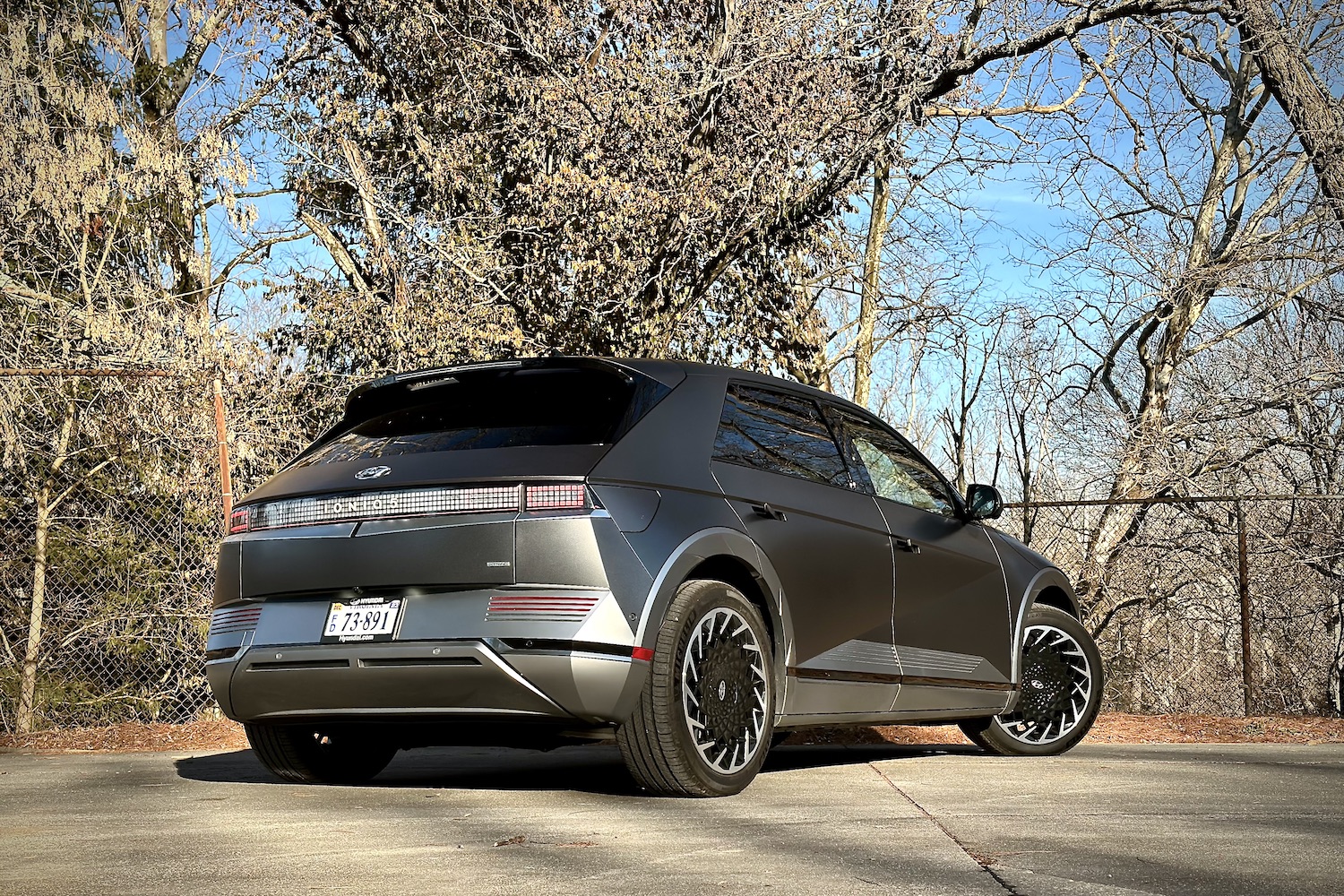Electric cars have come a long way over the past few years. Gone are the days when the thought of an electric car was a novelty — these days, EVs are common, (mostly) available, and for the most part, refined.
But they’re also still relatively expensive, especially for a good one. That’s exactly why you might be thinking about buying a used one.
But like with any product, there are pros and cons to buying a used electric car. Here’s a rundown.
Pros of buying a used electric car

A lower price
The main benefit of buying a used electric car is of course the lower price. EVs are still more expensive than their standard gasoline counterparts, especially if you want an EV with a decent range and feature set. Buying a used EV can bring that price range down significantly, meaning you can get the benefits of an electric car, like the lower cost of maintenance and the lack of a need to buy gasoline, without paying a premium for a new model.
Could already have carpool exemption stickers
In some areas, electric cars may be eligible for exemptions from carpool lane restrictions and other perks. If you buy a used electric car, it may already have those stickers — meaning you can give your commute a boost without needing to go through the application process yourself. These stickers usually last a few years and go wherever the car does (even if it changes owners). That could help you save even more money.
Issues are already ironed out
Like any new product, electric cars can run into issues around performance and software — and from time to time, they’re even recalled to replace faulty parts. If you buy a used electric car, it’s likely that it may have already received software updates to iron out bugs, and already gone through any necessary recalls for faulty parts.
Cons of buying a used electric car

Normal wear and tear
The main downside to buying a used electric car is that you are inheriting someone else’s wear and tear. EVs don’t require maintenance quite as much as standard gasoline cars, but they do have some wear and tear, like any car. Make sure to check the overall condition of the car before you commit to the purchase — and be sure to factor any unexpected maintenance costs into your budget.
Warranty may be expired or expiring
Most electric cars come with a relatively long warranty — and some of them can be transferred to a new owner if the car is sold. But if you buy a used electric car, the warranty may already be voided. That means that if you encounter any issues, you’ll have to pay for repair or replacement out of pocket — so make sure to factor that into your budget, too.
Battery health
On top of regular wear and tear, it’s worth paying particularly close attention to the health of the car’s battery. Batteries on electric cars can vary — some may be brand new, some may have been through several charge cycles, and some may be close to the end of their life. To make sure you’re not investing in a car with a weak battery, you should get a professional estimate of the battery’s health before signing any papers. Some EVs offer other ways to check battery health — for example, on a Tesla, you can check how much maximum range your car has lost in the mobile app. Again, it’s worth checking with the manufacturer and ensuring the battery, at least, is still under warranty,
Tech is advancing quickly
Finally, it’s also worth noting that electric cars are advancing quickly. Every few years brings major improvements to the tech and features that are available — and that might mean that a used electric car won’t offer things like as high of a range or advanced features that are available on other modern electric cars. That’s not necessarily a bad thing, but it’s something to consider when making a purchase.



